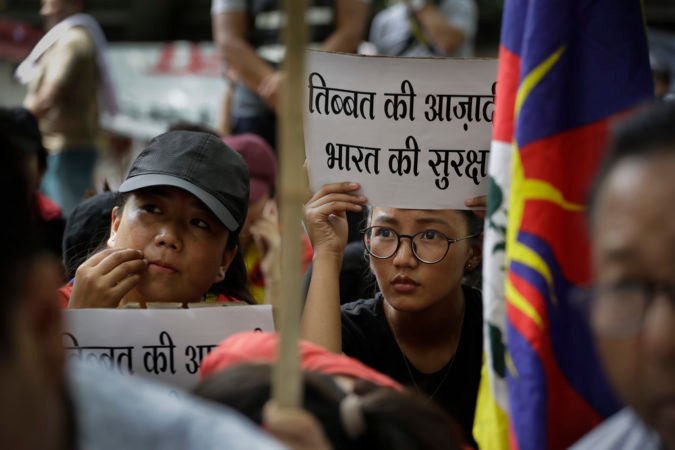Interview: New Delhi’s Tibet Dilemma

Xi Jinping most awaited India visit is due next week. Chennai is ready to host Chinese president, who’ll be meeting Indian Prime Minister Modi in the second informal meet, after the first one in Wuhan. According to media reports, there have been arrests made by Chennai Police against Tibetans who were protesting against Chinese crackdown on their cultural and religious practices in the Tibet region.
Tibet is a long-standing irritant between India & China. One of the oldest between the two Asian giants. It all started in the Mao era when His Holiness Dalai Lama flees to India along with other Tibetan refugees and received by India’s first Prime Minister Jawaharlal Nehru, who later permitted to set-up Tibetan Government of Exile in Dharmashala, India.
The Kootneeti Team interviewed renown professor John West who’s also the author of the book, Asian Century… on knife-edge. Here are the excerpts of the Interview on the Tibet issue. Watch the complete interview here.
Amit Sinha: What are your views on His holiness Dalai Lama and the Tibet issue and especially, the Chinese policy in regard with Tibet and policy which China is acquiring for its neighbours, especially in the Indo-Pacific Region, on its boundaries with India, in the South China Sea etc.
John West: I think that India has done a wonderful job in receiving the refugees from Tibet and hosting the Dalai Lama and his government and I congratulate Indian country and government for welcoming Tibetans. The situation for the Tibetan people in China is really not a good situation, it’s a very worrying situation. I think that the position of Dalai Lama himself who’s a very moderate man has a very sound position. He’s not asking for a political Independence from China, he’s happy for Tibet being part of the Chinese nation, but what he like would be Independence and autonomy from the cultural and social point of view and this is where we see Tibetan people are suffering. Because the Chinese government is moving the land to Chinese people and will see at some point of time, Tibetans being minorities in their own area. And of course, the Chinese government is very repressive towards human rights issue for the Tibetan people who are suffering greatly. And as per my understanding, Chinese are waiting sort of Dalai Lama to die. They think that the Tibetan problem and Tibetan issue will disappear after that occurs. That may not be true. What I’m concerned about that the Dalai Lama in exile in Dharamshala is quite moderate. When the Dalai Lama leaves and then Tibetans in Tibet maybe have more power over the Tibetan political issues. The Tibetans may, in fact, become much more militant and there may be social and political unrest in Tibet and we would all suffer from that. And as Chinese friends often underestimate the extent to which people don’t enjoy the repression they apply to other people. And Hongkong is I think a big lesson for them. Hongkong one of the richest economies in the world. You would imagine that Hong Kong people would be happy there. But Hong Kong people are very unhappy about many aspects of life in Hong Kong. They’re unhappy about the activities of the Chinese government. I sympathise greatly with our Tibetan friends. Our Tibetan friends should have freedom of cultural expression, freedom of social activities, and be respected by the Chinese government. That is not the case and it’s a tragic situation.
Vinod: Do you have any piece of advice for the Indian government to deal with this issue. What you think they can do in this regard? I mean thinking of the consequences ahead. Do you think India needs to rethink its policy as far as the issue of Tibet is concerned?
John West: I think the Indian government in all of this should do much of it can to help the Tibetan people. I believe in cultural self-determination. That we all should be able to determine how one society and culture live. Unfortunately, the Chinese government doesn’t agree with our approach, for them, they’ve bossed Tibet and not Tibetan people their own boss. The more government of India do to raise the issue of Tibetans in international discussions, international forums like the United Nations, that’s a very good thing and a big problem of course, with the rise of China’s power, is that most western countries are very keen to get into the Chinese market and sell everything, as they do that, they go soft on issues like Tibetan human rights. That’s a bad thing. I think moral, ethics and values are very important. I think that India should be very active and it’s a very important issue to take on China.
Watch the complete Interview with John West here
Professor John West is the author of book Asian Century… on knife-edge.
Amit Sinha & Vinod Subramanian are Consulting Editors at The Kootneeti


















